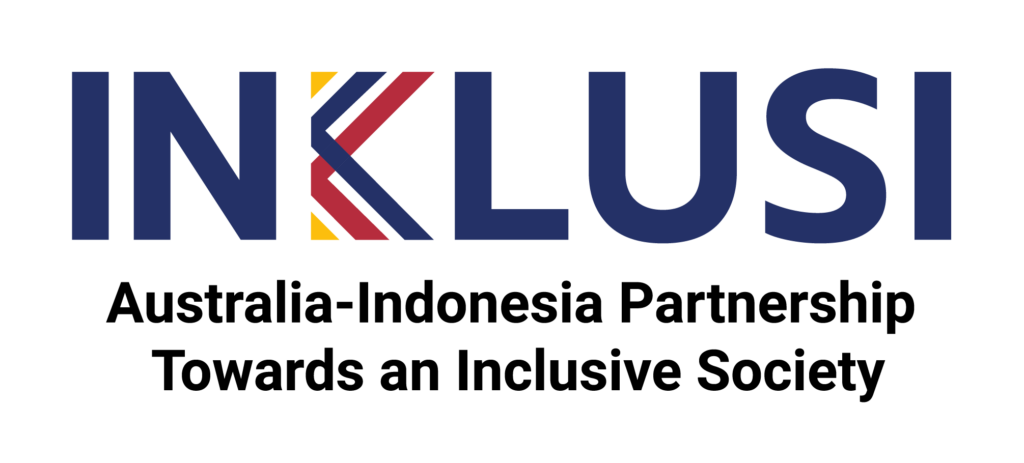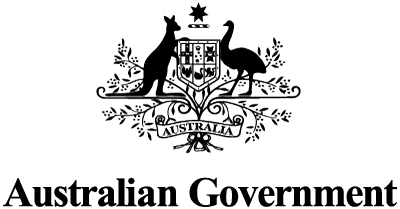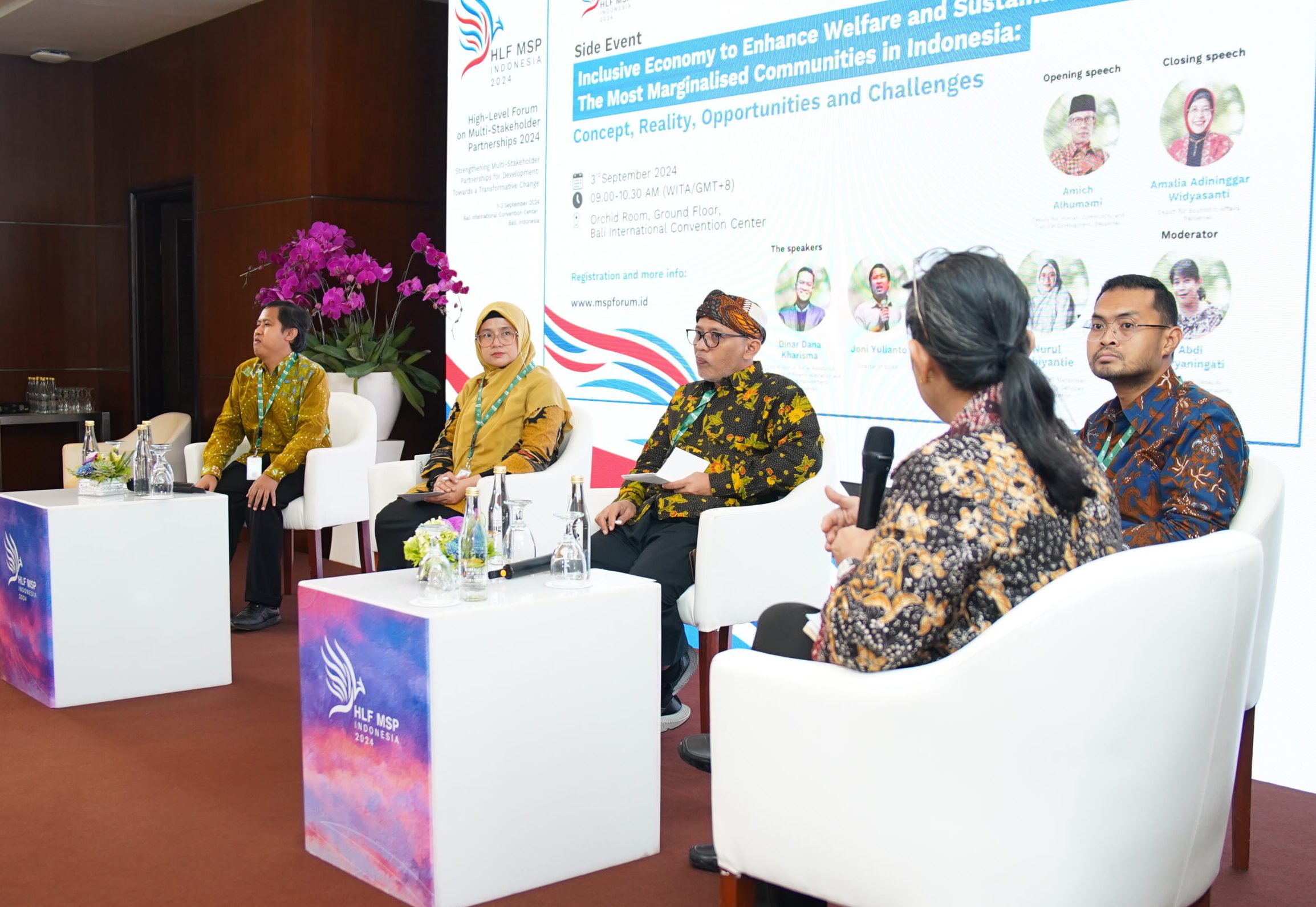The Australia-Indonesia Partnership Towards an Inclusive Society (INKLUSI), in collaboration with the Ministry of National Development Planning (Bappenas), held a side event titled Inclusive Economy to Enhance Welfare and Sustainability of The Most Marginalised Communities in Indonesia at the High-Level Forum on Multi-Stakeholder Partnerships 2024 in Bali on 3 September 2024.
This event focused on the concept of an inclusive economy to improve the welfare and sustainability of marginalised communities, particularly people with disabilities and indigenous communities. Experts from Bappenas, Inclusion Center and Advocacy Movement for the Disabled (SIGAB), The Partnership for Governance Reform (KEMITRAAN), and the Employment Disability Service Unit shared insights on the challenges and opportunities and best practice examples of promoting economic inclusion of marginalised groups.
Policies and Concrete Actions for Economic Inclusion
In his opening remarks, Amich Alhumami, Deputy for Human Development, Society and Culture at Bappenas, highlighted Indonesia’s policies aimed at fostering an inclusive society aligned with the Sustainable Development Goals.
“The policies implemented by the Indonesian Government reflect a strong commitment to achieving inclusive human and cultural development. Through programs like the Kartu Indonesia Pintar (Indonesia Smart Card), Jaminan Kesehatan Nasional (National Health Insurance), and MSME empowerment initiatives, we ensure that every individual, including those from marginalised groups, has equal opportunity to grow and participate in development. Effective implementation and continuous adjustment of these policies are crucial to ensuring that their benefits reach all layers of society,” said Amich Alhumami.
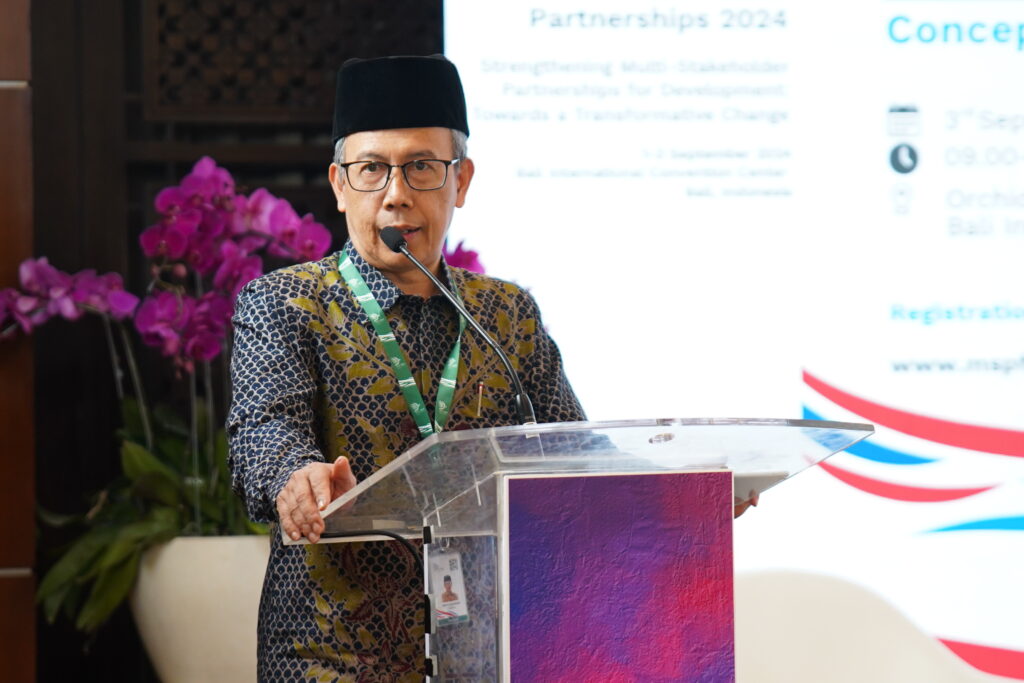
INKLUSI partners, SIGAB and KEMITRAAN, shared their experiences of implementing government policies to empower marginalised groups. Joni Yulianto, Executive Director of SIGAB, highlighted the challenges faced by people with disabilities in accessing formal employment due to social stigma. One of SIGAB’s solutions was to collaborate with the Department of Manpower to establish and optimise Disability Service Units, which connect people with disabilities to employers, training opportunities and job openings.
Through the Strengthening Social Inclusion for Diffability Equity and Rights (SOLIDER-INKLUSI) program, SIGAB and the Cirebon Disability Communication Forum (FKDC), collaborated with the Disability Service Unit in Cirebon Regency to expand access to training and employment for people with disabilities. Nurul Febiyantie, Functional Staff of the Disability Service Unit, said the unit provided vocational training, linked trained people with disabilities to appropriate jobs, and improved data to ensure the program’s benefits reach more people with disabilities in the area.
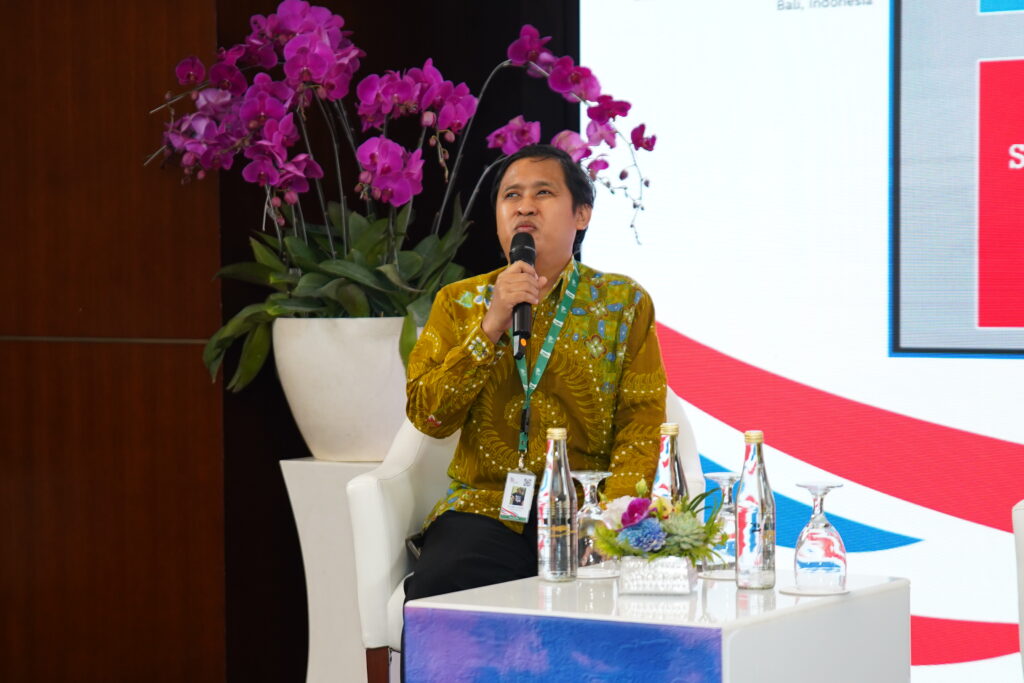
Yasir Sani, Program Manager at Kemitraan, discussed the challenges faced by adat communities in achieving economic inclusion, including social stigma, limited access to basic services, discrimination based on traditional beliefs, and geographical remoteness.
To overcome these challenges, Kemitraan, through INKLUSI, has fostered economic empowerment by establishing community-based enterprises that utilise sustainable local resources. They have also strengthened the entrepreneurial capacity of indigenous communities to ensure long-term economic self-sufficiency.
A significant achievement was noted among the Suku Anak Dalam indigenous community in Jambi, where Kemitraan collaborated with Pundi Sumatra to provide smoked fish production training using local resources. The active involvement of women in this economic activity contributed to improved welfare among the adat community.
The Importance of Multi-Stakeholder Collaboration
Amalia Adininggar Widyasanti, Deputy for Economic Affairs at Bappenas, emphasised the importance of collaboration between government, civil society, disability organisations and educational institutions to accelerate inclusive economic outcomes in Indonesia.
“We must harmonise the processes of planning, budgeting, implementation and evaluation to realise inclusive economic development that improves the welfare of marginalised communities,” she said.
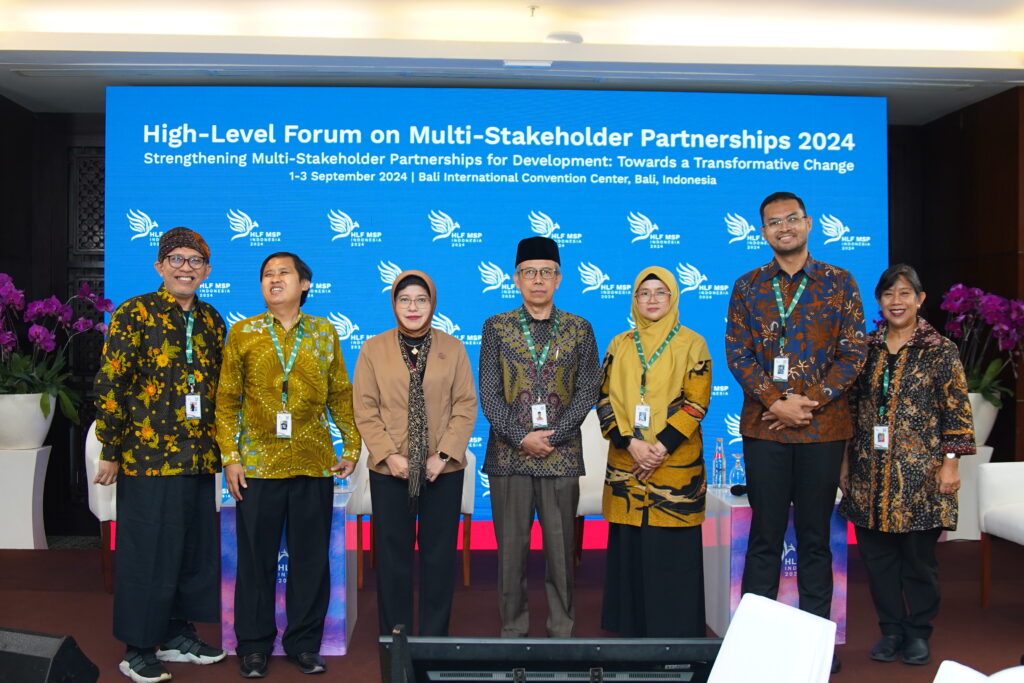
The High-Level Forum on Multi-Stakeholder Partnerships 2024 provided a crucial platform for strengthening collaboration and accelerating collective action through a multi-stakeholder approach. By bringing together various stakeholders, from government to the private sector, the forum is expected to generate more inclusive and transformative policies, ensuring that no group is left behind in the development process.
